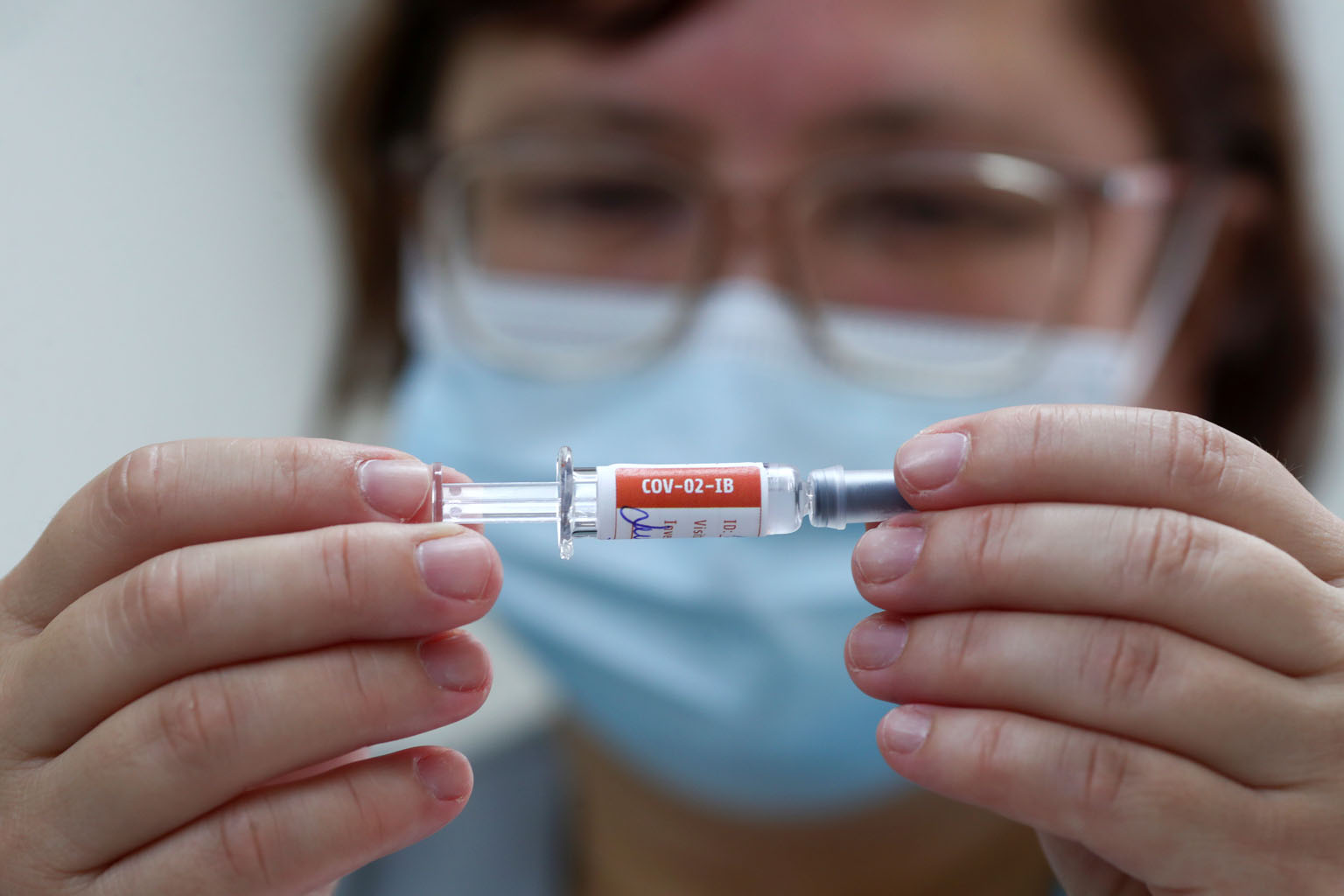Coronavirus Vaccines
Brazil's regulator says China not transparent on Sinovac vaccine
It cites lack of info on the criteria used to authorise emergency use
Sign up now: Get ST's newsletters delivered to your inbox

A nurse about to administer Sinovac's CoronaVac vaccine to a trial volunteer at Emilio Ribas Institute in Sao Paulo, Brazil last Friday.
PHOTO: REUTERS
Follow topic:
SAO PAULO • Brazil's health regulator Anvisa on Monday said China's health authorities are not transparent in their authorisation of Covid-19 vaccine for emergency use, a statement that may further inflame political tension in the South American country.
Brazilian President Jair Bolsonaro, a consistent China critic, has repeatedly cast doubt on the CoronaVac vaccine being developed by China's Sinovac Biotech.
"Brazil is the international leader in the evaluation process for CoronaVac," Anvisa said on Monday.
"The vaccine has had an emergency use authorisation in China since June of this year. The Chinese criteria for granting emergency use authorisation are not transparent, and there is no available information about the criteria currently in use by Chinese authorities to make these decisions."
China's Foreign Ministry spokesman Wang Wenbin yesterday said China had been attaching "great importance" to the safety and efficacy of its vaccines.
While Brazil's health regulator has long been largely apolitical, Mr Bolsonaro has been appointing allies to it in recent months, stoking fears among health professionals that its decisions may be affected by political considerations.
At least tens of thousands of people have taken the Sinovac vaccine in China's emergency use programme. But it has not made public details of how it determines if a Covid-19 vaccine is qualified for emergency use.
When asked, a Sinovac representative referred to a health official's statement in October that said the emergency inoculation was launched after stringent reviews and in accordance with China's laws and the World Health Organisation's rules.
The vaccine showed "very good safety and immunogenicity readings in phase one and phase two clinical trials", he said.
CoronaVac is undergoing phase three testing in Brazil's most populous state of Sao Paulo.
Its governor, Mr Joao Doria, a Bolsonaro opponent, said the state expected to start vaccinating its residents next month, though it will not use CoronaVac until it is approved by Anvisa.
Meanwhile, the country's leading public biomedical institute said a nationwide inoculation campaign would be possible only from March and would rely on the AstraZeneca vaccine.
Pressure has been mounting on Brazilian authorities to quickly make a Covid-19 vaccine available amid criticism that they have not secured a diverse enough supply of potential candidates.
"It's not a 100m sprint," said Mr Marco Krieger, vice-president of health production and innovation at the Fiocruz institute. "We at Fiocruz are prepared for a marathon."
Mr Krieger said the Rio de Janeiro-based institute, which has a deal to produce the AstraZeneca vaccine, expects to deliver 100 million doses in the first half of next year and another 110 million doses in the second half. That timeframe depends on Anvisa's approval.
The AstraZeneca vaccine was Brazil's main bet, with a 1.9 billion reais (S$495 million) deal in June securing raw materials and the transfer of production technology to Fiocruz.
Although it was initially the world front runner, the AstraZeneca vaccine was overtaken by Pfizer's, which became the first Covid-19 vaccine to be rolled out in a mass inoculation campaign in Britain.
Brazil has since moved to secure more than 70 million doses of the Pfizer vaccine. But only two million would be delivered in the first three months of next year.
"Only in the second half of next year will we have a level of vaccination cover sufficient to significantly reduce the circulation of the virus," Mr Krieger said, adding that 30 per cent to 40 per cent of Brazil's population could be inoculated by the middle of next year.
"We're seeing the light at the end of the tunnel, but we're still in the tunnel," he said.
REUTERS

